Originally published by Alex Kinsella on Communitech on May 10th, 2023.
No matter your role at a tech startup, developing a deep understanding of your customers is critical to delivering solutions to their challenges. Listening to customers can help you discover a challenge from someone else's perspective and help you see it in a new light.
Lara Johnson, a Senior Program Manager at RideCo, said working at the startup helped her understand a family member's transportation struggles in ways she hadn't considered. Johnson's sister has mobility issues that make walking difficult and driving impossible. She relies on public paratransit services that provide on-demand, specialized transportation for people living with a disability.
"She's always used paratransit services, but it never really occurred to me to dig into it before joining a SaaS company focused on transit. I didn't know the questions to ask about wait times and cancellation periods. I'm her little sister and I never really asked questions. Now that I know a lot about her struggles and frustrations, I do feel guilty for not asking earlier," Johnson said.
Supporting municipalities with paratransit services is one of the areas that RideCo focuses on. The startup was founded in 2013 by Prem Gururajan and provides on-demand transit technology and services for transit agencies in municipalities around the world. John McLeod, Head of Marketing at RideCo, said that while almost every city offers some form of paratransit, few improvements have been made to deliver better customer service for their riders and to make it more efficient for cities to provide the services.
"Paratransit hasn't evolved with the rest of the industry. The tech is 20 years old. For most riders, a phone call is the only way to book a ride. We're not saying that you shouldn't support phone calls, we do that too. But you need to offer a greater means of access. That's where RideCo comes in," McLeod said.
RideCo's primary use case has been on-demand transit, filling gaps in existing public transit systems. Municipalities use RideCo's platform to provide on-demand transit options for areas that often need more density to support a dedicated bus route.
Johnson said paratransit was a service RideCo wanted to support, but first, they wanted to ensure they met all the use cases and government requirements to do it right. It was during customer interviews that the RideCo team was able to build an understanding of the daily struggles riders face and how RideCo could help. With that knowledge, RideCo now enables paratransit services with deployments running in several cities across the U.S. and Canada, including Houston, Texas, the 9th largest transit agency in the U.S.
For many riders, the service is the only way to get to appointments, grocery shopping and social events. Johnson added that many public transit operators rely on pen and paper to schedule and route rides, most requiring two to three days' notice.
Unlike other on-demand transit companies, RideCo is focused on maximizing the efficiency and sustainability of a municipality's fleet. This focus is especially important for paratransit since those vehicles are specialized for wheelchair access and other mobility issues.
When a municipality deploys RideCo's platform, it can add on-demand and pre-scheduled services to its existing fleet. McLeod said customers who require dialysis are a perfect example of how RideCo helps.
"People will have their dialysis appointments Monday at nine. Dialysis appointments are extremely time-sensitive. RideCo gives the flexibility for someone to pre-schedule their rides and make sure they've got a committed ride," McLeod said.
While getting a ride in minutes is easy for most of us, people living with disabilities usually have to pre-book days in advance, and those rides aren't always guaranteed to be available. Accessible, dependable, on-demand booking is critical to reducing stress for paratransit riders, Johnson said.
"Think about having to organize your entire life two to three days in advance. The chaos of trying to get to all your kids' activities, grocery shopping and appointments. Not being able to call a ride on demand like everyone else is huge," she said.
Johnson added that working at RideCo has helped her better understand how critical public transit is to the communities that rely on it, particularly people living with disabilities. She said she wants to use her voice to help advocate for better services to make transit more equitable and accessible.
"There's no reason why people living with a disability should be so disadvantaged compared to other people. But often these riders don't know the questions to ask their leaders, or that there are other options to get better service," Johnson said.
As RideCo continues to work with municipalities to deploy on-demand paratransit services, Johnson said she looks forward to talking with more customers to further understand their everyday mobility challenges.
"It took me getting this job to know the right questions to ask. Public transit is a lifeline for people. This is how they get to their jobs. This is how they get food. This is how they take their kids to school. There is a huge impact when you can't depend on a ride," Johnson said.






.svg)




